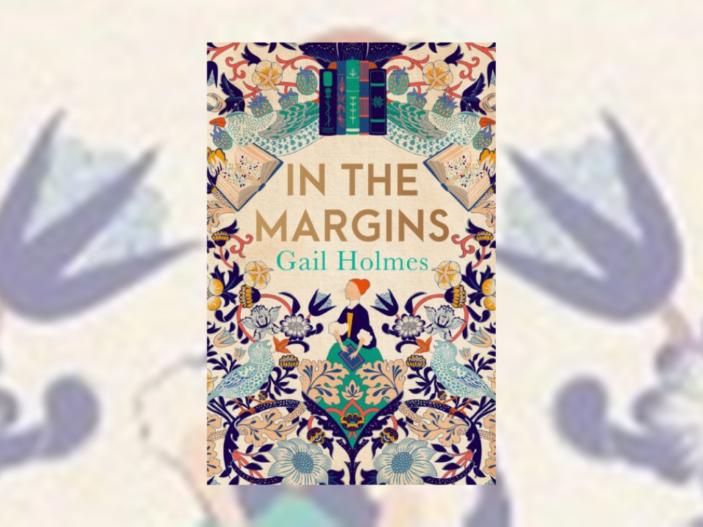
In 1647, rector’s wife Frances Wolfreston is uneasy about a new task she has been given. England is under Puritan rule, and it is Frances’s job to record the names of those who are not attending church – those who may still be practising the Catholic faith in secret.
But, Frances knows that those whose names she records will be fined, and that those who cannot pay will be imprisoned. In particular, one of her neighbours, a solitary older woman who once helped Frances in a time of need. Unsure of how best to act, Frances does nothing… This is the set up of In the Margins, the debut novel by Scottish-born author Gail Holmes.
Frances, a book collector, purchases a book of poetry from a travelling salesman who has been brought low in the world through his service to the army. There is something strange about the man, known as Sam, but her two sons (including Middy, who is slow to speak and seems to have learning difficulties) seem to like him, and so the family take him on.
Meanwhile, Frances begins teaching reading and writing to several of the local children, though her actions bring criticism from some of the elders of their parish. When the news arrives that Frances’s mother has been imprisoned for not attending church, it is all the ammunition that Frances’s enemies need.
Though this book is blurbed as being about the woman who preserved the earliest part of Shakespeare’s legacy, Frances’s book collecting is more of a background detail. Shakespeare’s work – two works in particular – provide some intertextual and thematic links, but the story works well enough without them.
Instead of being a novel about how Frances preserved the work of the bard, this is a story about a woman who was well-educated at a time when this was uncommon and who advocated for others to be educated. Frances knows that education is a powerful tool, and that for her young charges, that it might be the thing that saves them from abject poverty. A definite link is made between Frances and her mother’s love of reading and their intellectual enlightenment compared to those around them. While feminism surely did not exist yet, Frances certainly is set apart from others in her community and seems to know better than they do.
A gentle book, this story does provide enough of a historical context for readers to situate themselves in time, but Holmes doesn’t take a heavy handed approach in setting the scene. Her focus is more on the day to day life, and on the characters, rather than on recreating a sense of time and place. For a story that is more about a small community rather than broader political conflicts, this works well, though I wonder if it will irritate readers who come to the story with different expectations.
Some of the historical events that are referred to in the text – for example, the Pendle witches, the Puritans, King Charles and the Civil War – may pass by readers who are being introduced to this part of history for the first time. Whilst the story stands on its own, but I wonder if the book will be as enjoyable for those who miss the easter eggs the author has hidden throughout.
Readers who enjoyed The Dance Tree by Kiran Millwood Hargrave or The Maiden by Kate Foster should give this one a go.
![]()
![]()
![]()
![]()
![]()
FOUR STARS (OUT OF FIVE)
In the Margins by Gail Holmes is available now from Ultimo Press. Grab yourself a copy at your local bookstore HERE.
